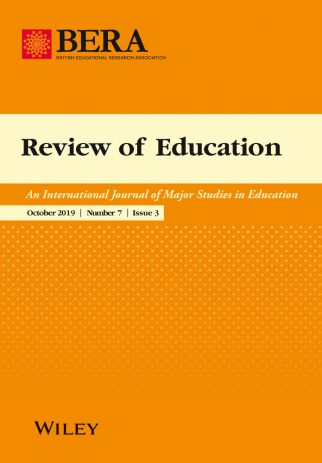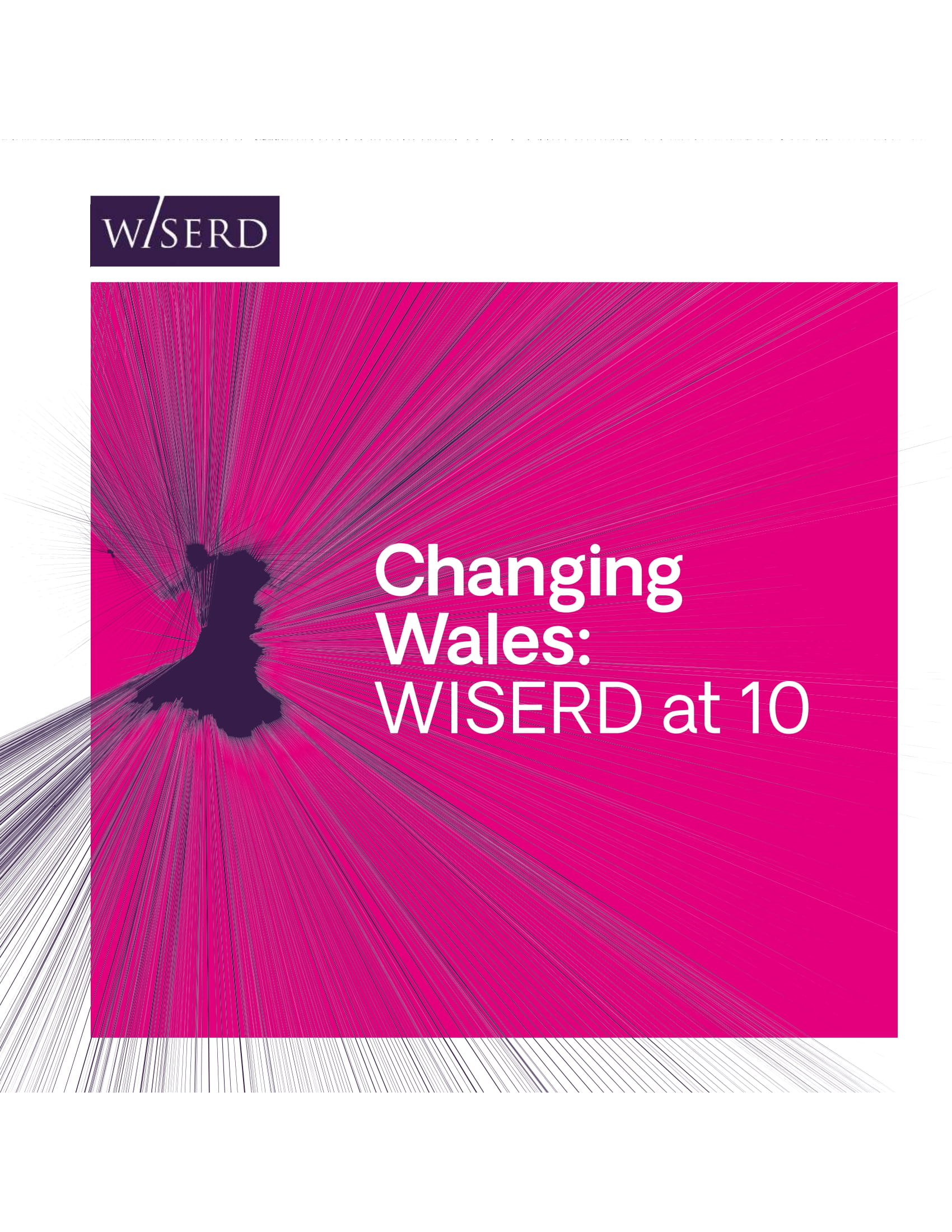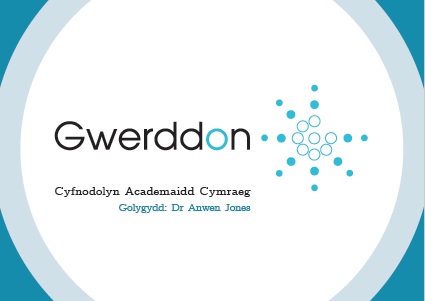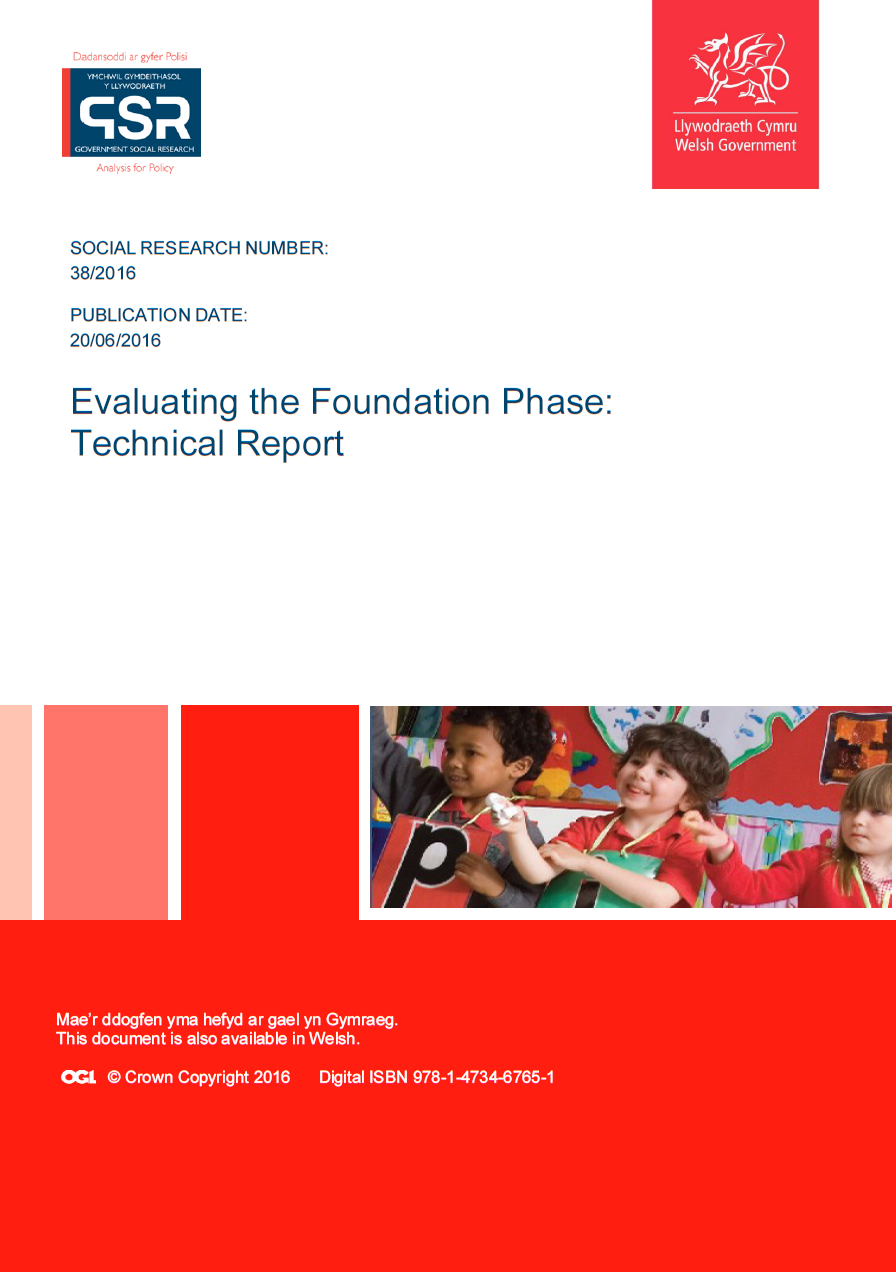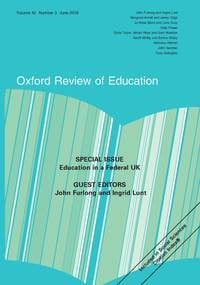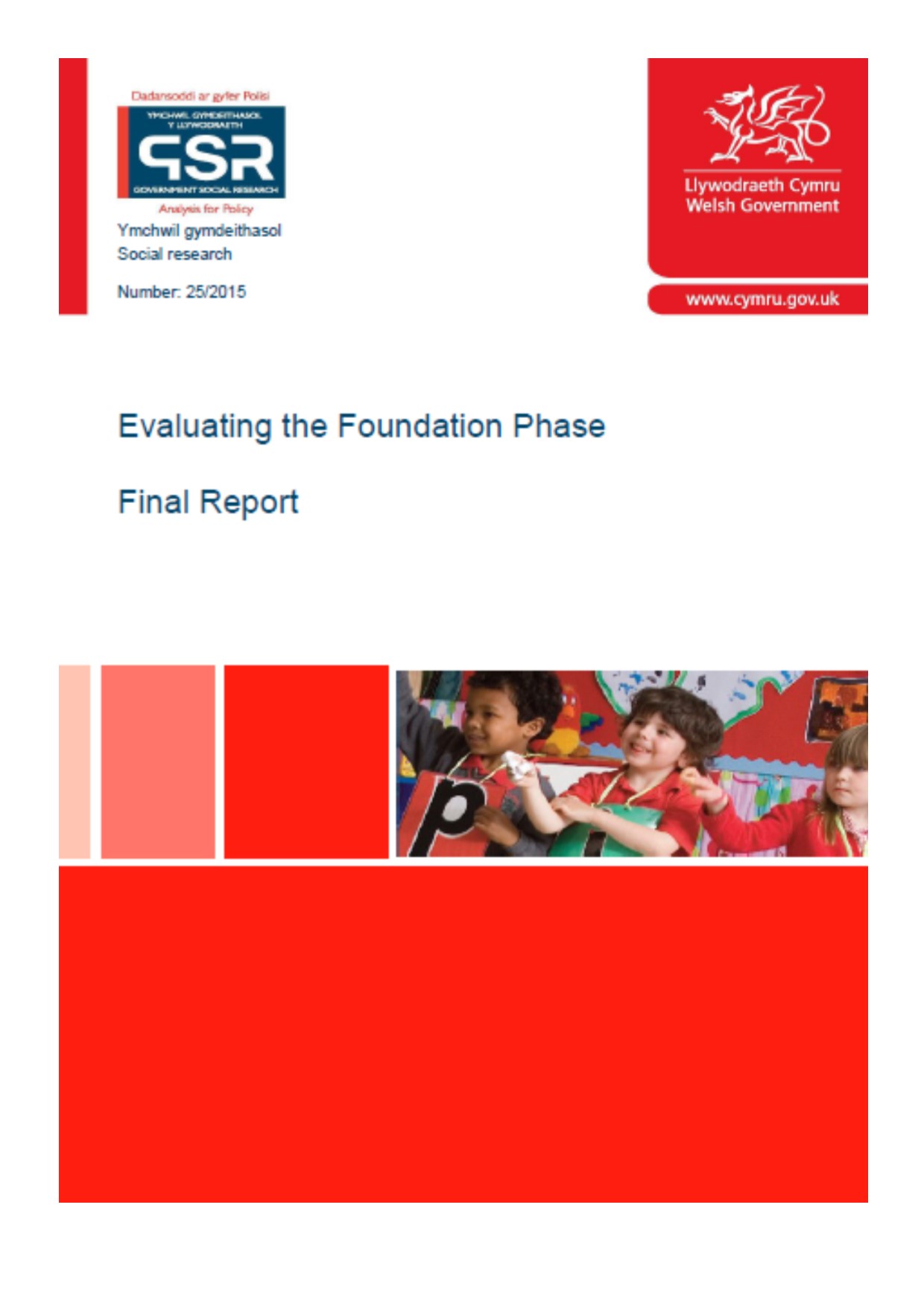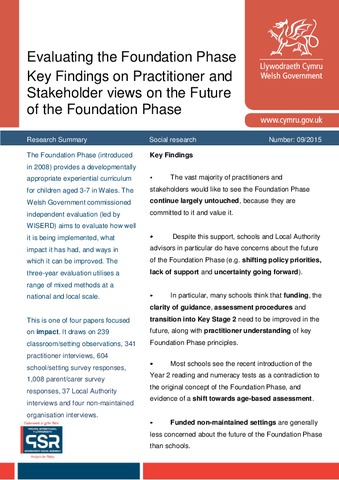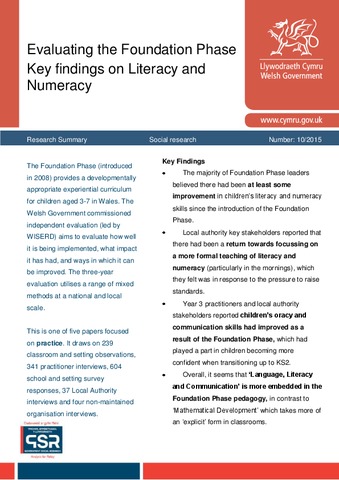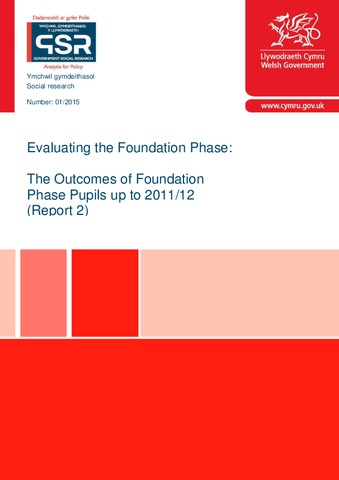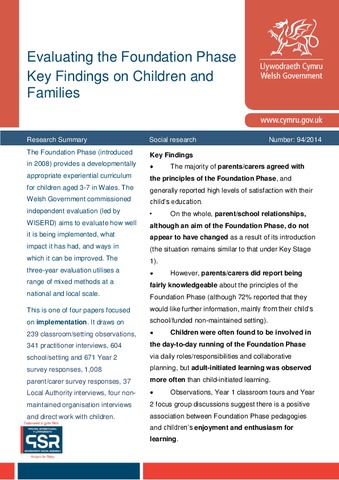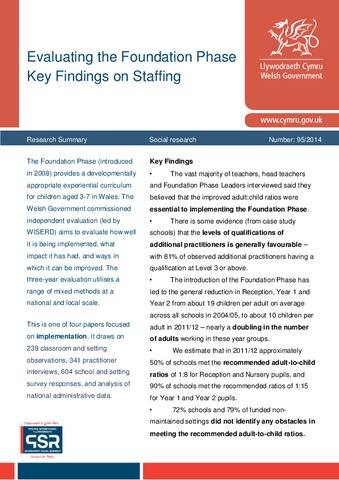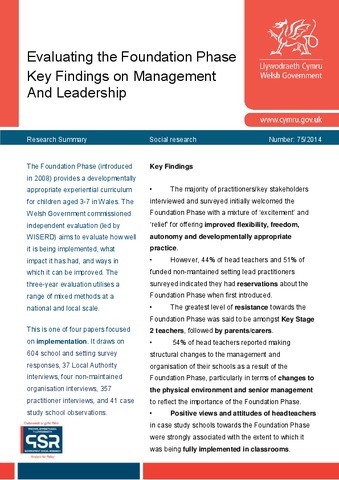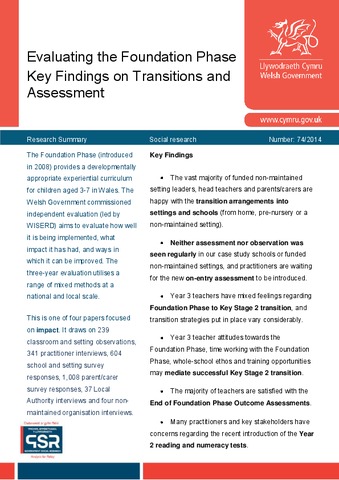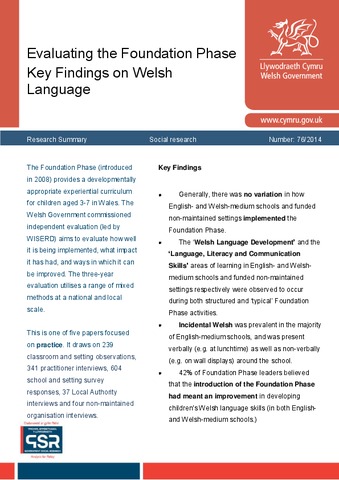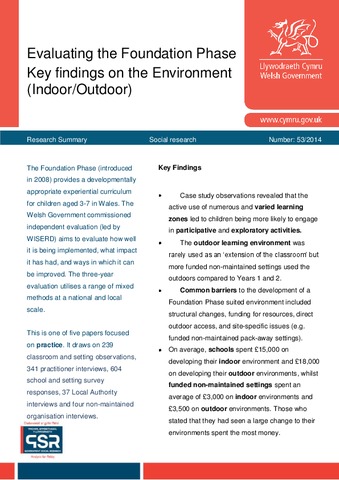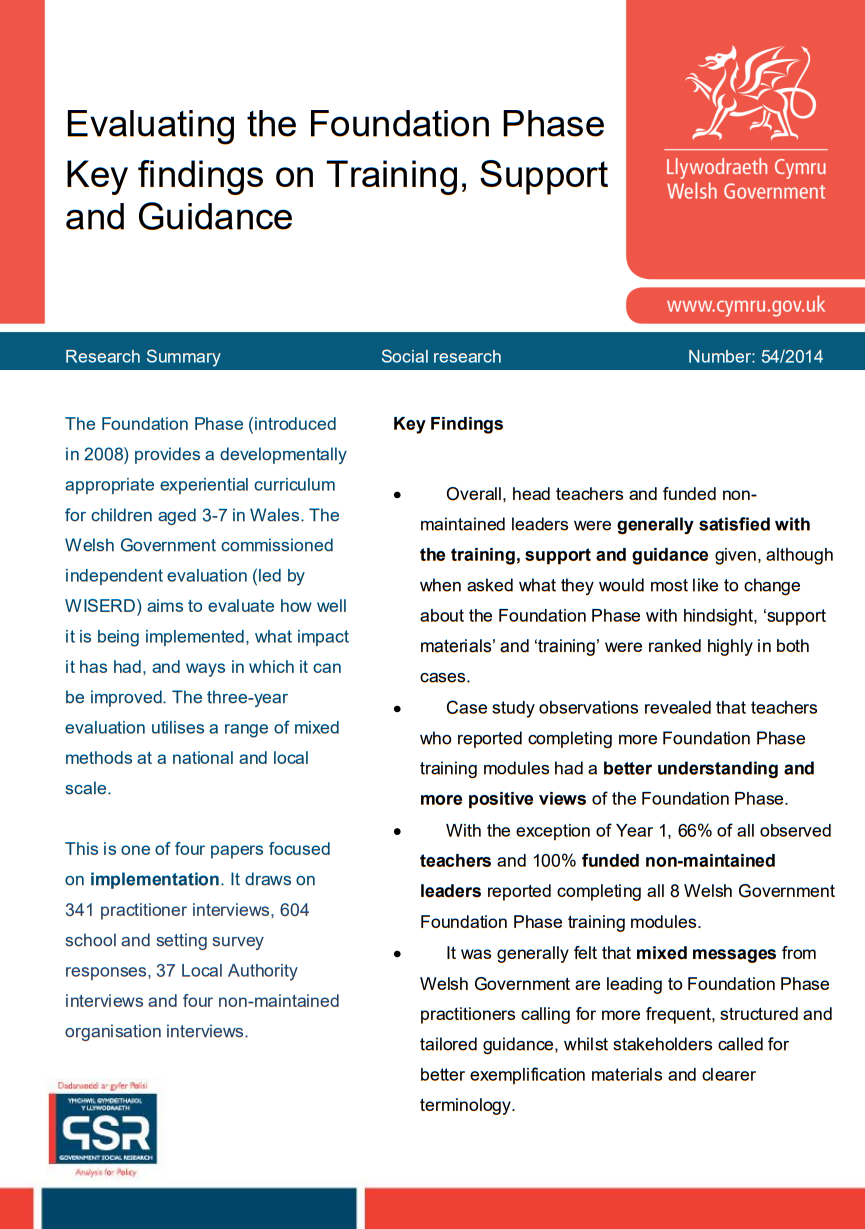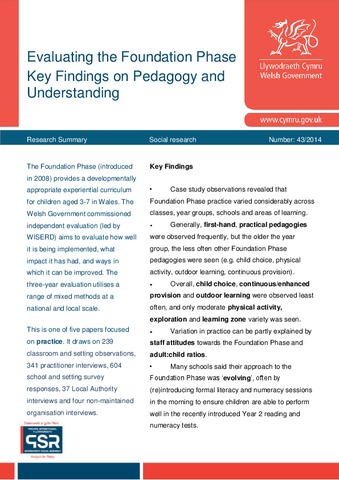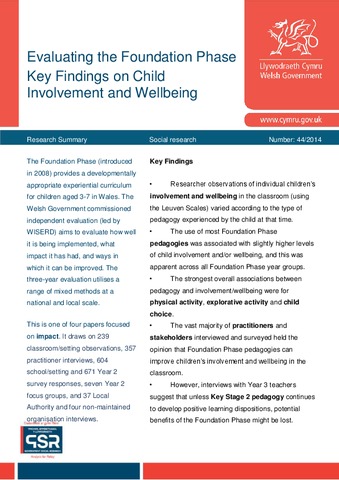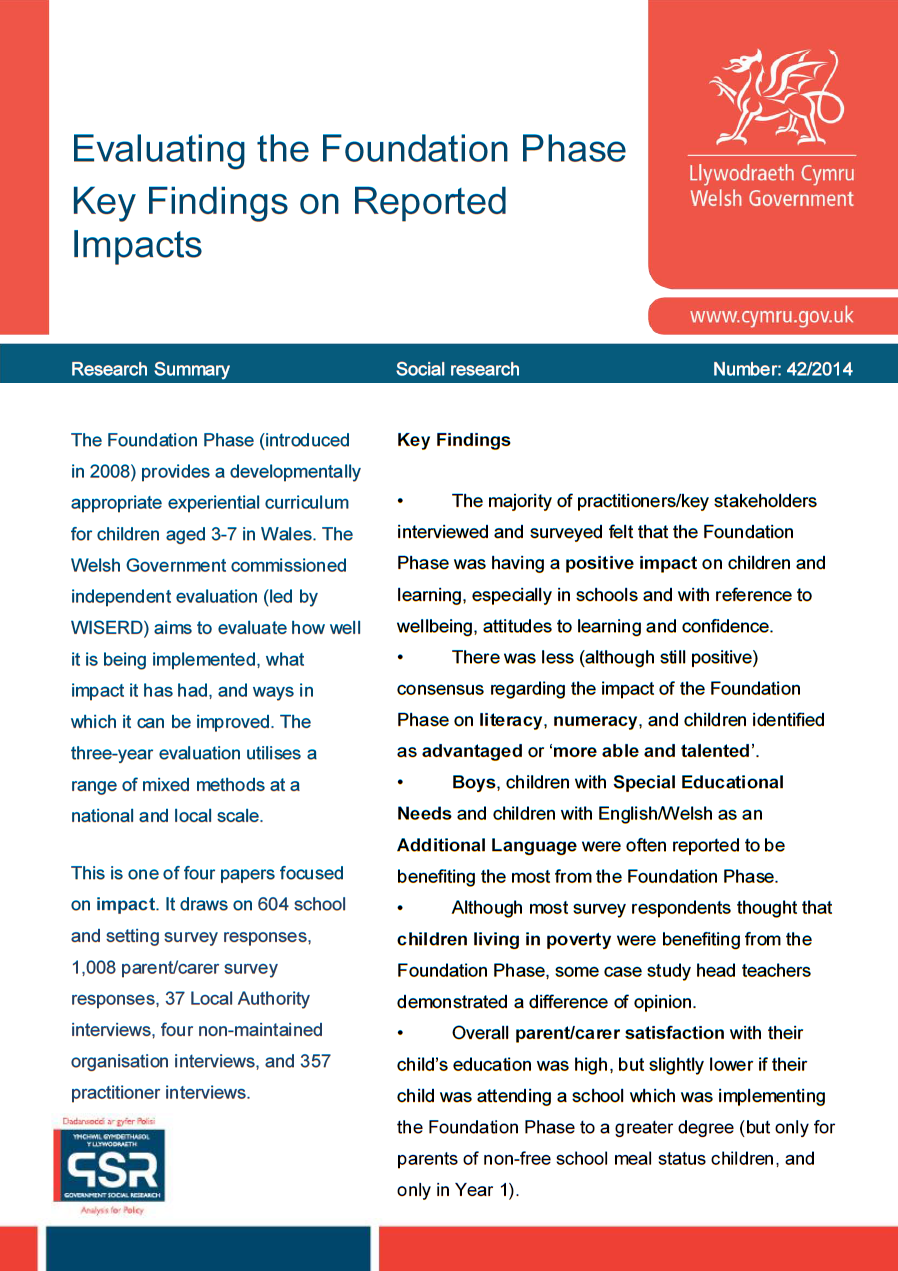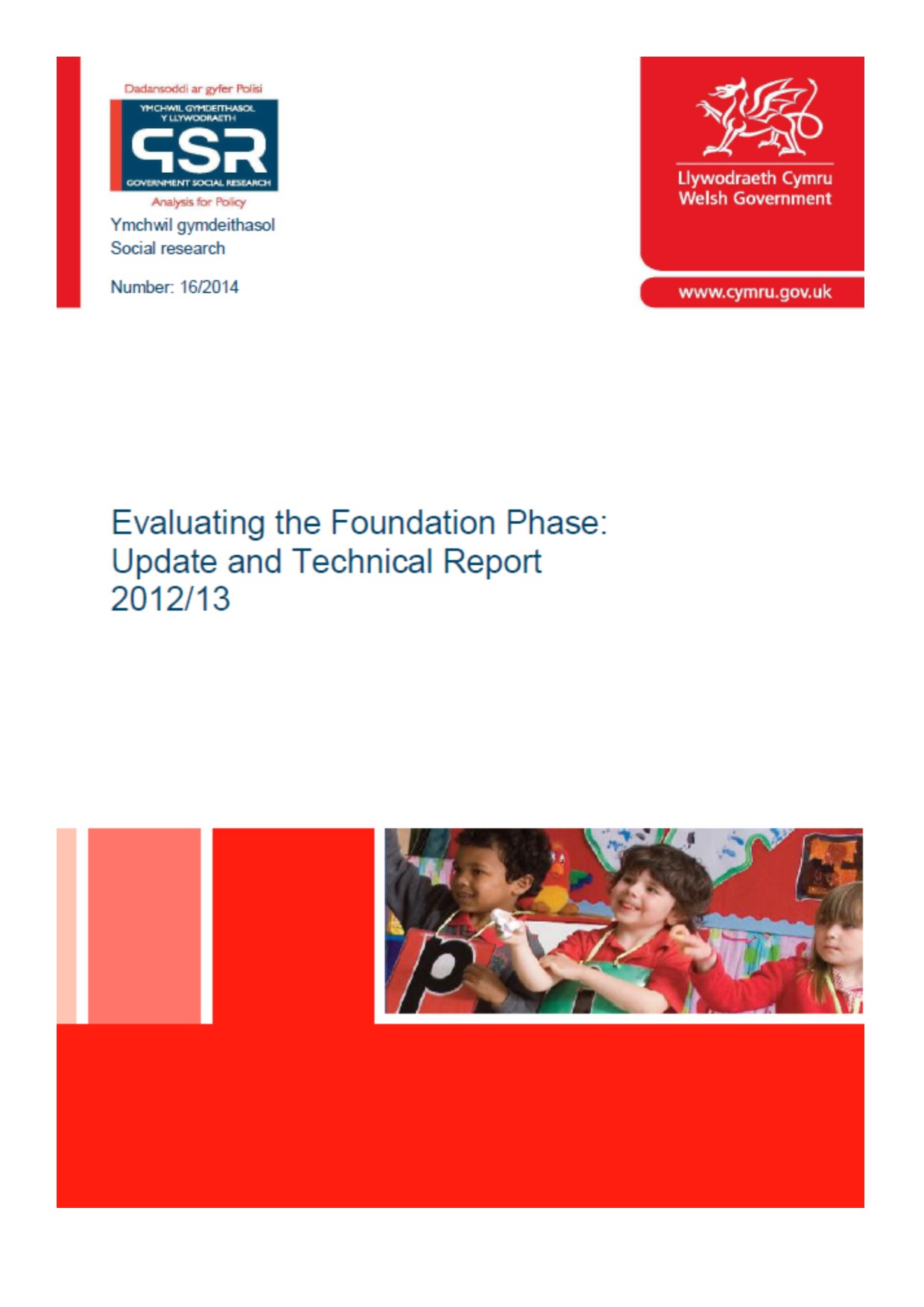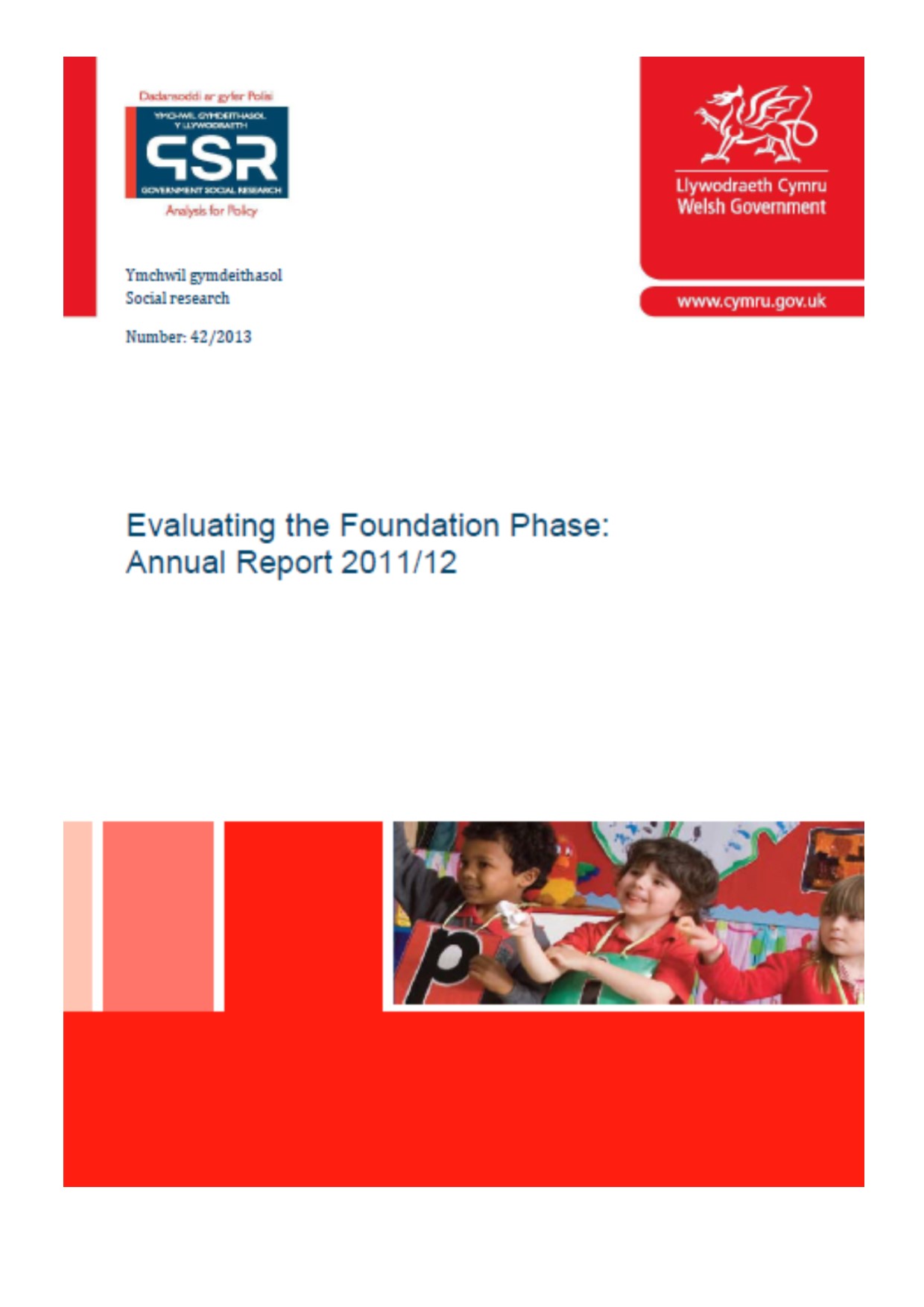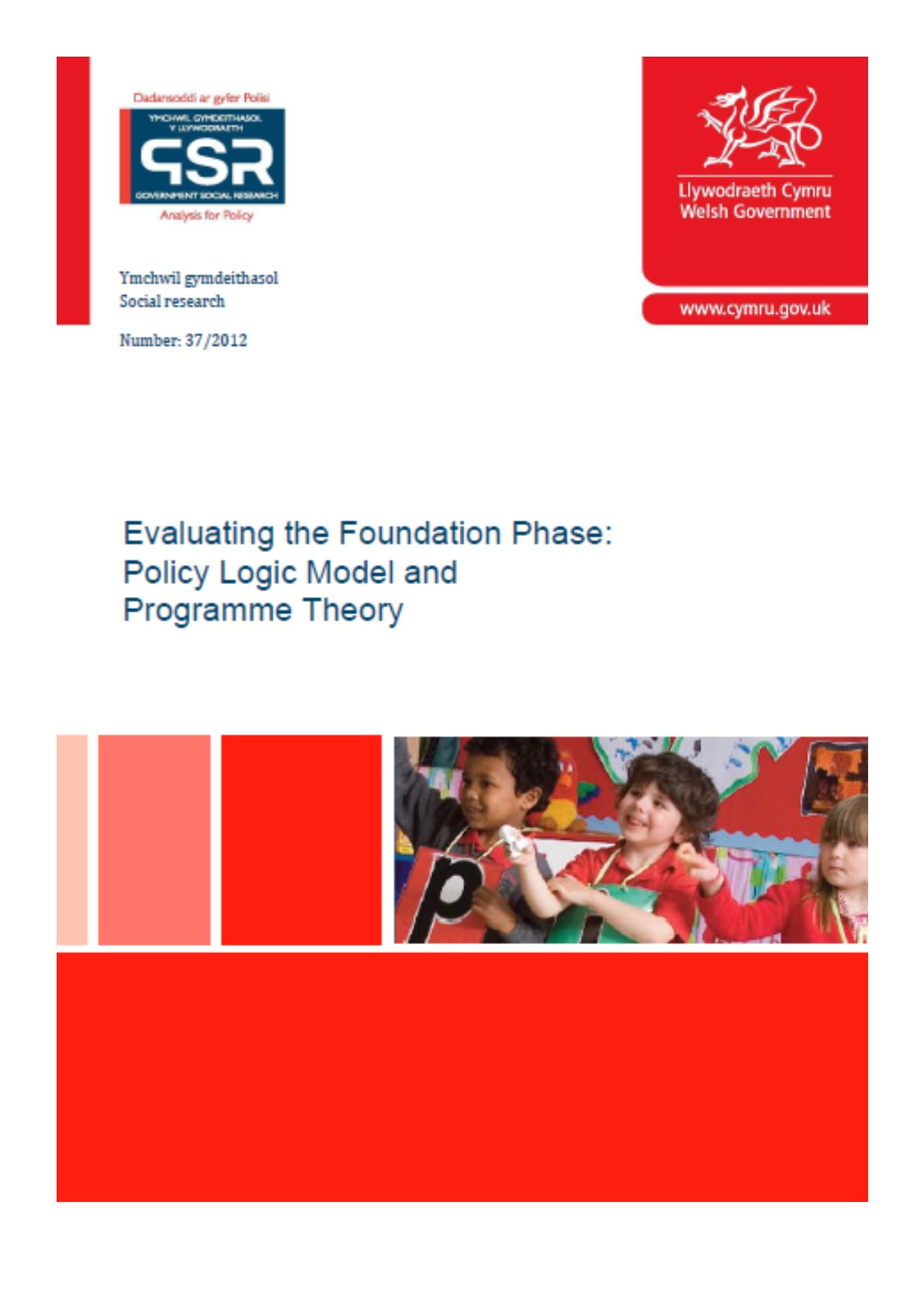WISERD undertook an independent evaluation of the Foundation Phase early years education policy for the Welsh Government.
The Foundation Phase (FP) is an early intervention approach to learning for all children aged three to seven years in Wales. It is based on principles of experiential learning – or ‘learning through doing’ – and marks a radical departure from more assessment-based competency approaches.
The three-year research project (August 2011 to August 2014) included analysis of educational data and interviews with teachers, parents, local authorities, head-teachers, and the school children themselves. It evaluated the implementation of the policy and what impact it has had to date. In doing so it would provide advice and guidance to practitioners and stakeholders on its continued development. The research also assessed the value for money of the FP and design a framework to track its outputs and outcomes in the future.
The project brings together a high profile team with considerable experience of research in the areas of early childhood education, policy implementation, school effectiveness and economic analysis. Members of the team have extensive experience of working with Welsh local authorities and schools.
Media and Communications
The clip below shows a statement by the Minister for Education and Skills: Evaluating the Foundation Phase Final Report.
Minister Huw Lewis said of the report: “This is a report of the very best kind, I think, because it gives policy makers and professionals tools for the next stage of the job. It’s truthful, it’s challenging, it’s not afraid to point to inconsistencies and insufficiencies within what we have, and it gives us a platform, I think, for some really focused work over the next few years.”
The Evaluation
An independent evaluation funded by the Welsh Government
The Foundation Phase is one of the Welsh Government’s most exciting policies, marking a radical departure from the more assessment-driven competency-based approaches to early childhood education that have been adopted elsewhere. The policy has been progressively ‘rolled out’ over the last seven years so that next year it will include all 3-7 year olds in Wales. A thorough but sensitive evaluation is now essential to ensure that its implementation is progressing well and that it promotes effective learning for all children in Wales.
This evaluation brings together a high profile team with considerable experience of research in the areas of early childhood education, policy implementation, school effectiveness and economic analysis. Members of the team have extensive experience of working with Welsh local authorities and schools.
There are four main aims of the evaluation:
- To evaluate how well the FP is being implemented and highlight ways in which improvement can be made (the process evaluation);
- To evaluate what impact the FP has had to date (the outcome evaluation);
- To assess the value for money of the FP (the economic evaluation);
- To put in place an evaluation framework for the future tracking of outputs and outcomes of the FP (the evaluation framework).
The evaluation employs a stepped wedge design to exploit the sequential roll-out of the Foundation Phase across a number of different schools and settings at different time periods. In particular, much of the evaluation will focus on comparing successive cohorts of children who have been through three sets of school settings at different phases of the implementation: Pilot Settings, Early Start Settings and Final Roll-out Settings. The evaluation also utilises a range of methods to ensure it captures as many aspects of the implementation, delivery and impacts of the Foundation Phase programme.
Key Features of the Evaluation
- A national survey of headteachers and centre managers
- Interviews with key policy makers in national and local government from across Wales
- Teacher interviews across different regions of Wales
- Forty in-depth and randomly selected case studies across different regions of Wales
- Series of snap-shot classroom/school observations across year groups and times of day
- Snap-shot observations in pre-school maintained and non-maintained settings
- A questionnaire of parents with children in the Foundation Phase
- A survey of Year 6 children to look for differences in attitudes towards education
- The analysis of attendance data to identify changes in engagement and childhood well-being
- Comparisons of Key Stage 1 and 2 teacher assessment data within Wales
- Comparison of attainment data between schools/settings in Wales with ‘matched’ schools/settings in England
- Longitudinal analysis of children’s educational and social development
- Utilisation of PLASC and Pupil Attainment Data throughout the analysis
- Multi-level modelling of outcomes to improve the identification of cause-and-effect
- Tracking of vulnerable children, such as those in care or from single-parent households
- Tracking the trajectory of children from Flying Start into the Foundation Phase
- Costs and consequences analysis based on gross and net costs of implementation
- An evaluation website for the dissemination of findings and the engagement of interested individuals or stakeholders
- Annual reports: including summaries and more detailed research reports
- Reports on particular aspects of the Foundation Phase, including examples of good practice
- A typology of implementation based on case studies
- The development of a ‘programme theory’ underpinning the implementation of the Foundation Phase for the purpose of its evaluation
- The production of an Evaluation Framework for the future monitoring and evaluation of the Foundation Phase in Wales






